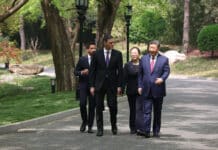Prior to taking on his current role as regional president, Carlos Mazón led the provincial team in Alicante, and this week it has been highlighted that, “The closing of the last budget of Carlos Mazón as president of the Alicante Provincial Council shows a total execution that barely reaches 56%. The most crucial items for the municipalities, such as real investments, remained at a scant 21%, while capital transfers barely reached 33%”, according to the Compromís group who revealed their examination of the accounts.
This is after the Provincial Council has presented the liquidation of the 2023 budget, the last one in which the current president of the Generalitat Valenciana, Carlos Mazón, left his mark on management. “Although the overall results improve slightly compared to the 2022 financial year, they are still clearly insufficient, especially considering that 2023 was an election year, when spending traditionally increases.” According to the intervention report, the overall execution stood at 56%, which is equivalent to saying that the Provincial Council only spent 5.6 euro out of every 10 available. Out of a total budget of 612,912,034.04 euro, including multiple credit modifications throughout the year, the PP government barely managed to execute 344,549,952.24 euro.
The good news is, not everyone in the province suffered the poor management, because there is a different picture, which boosts the overall figure, when we look at the payment of salaries to politicians and civil servants, which reached an execution level of 92.88%.
However, according to Compromís, “the most alarming data comes from the items that have the greatest direct impact on municipalities and citizens: investments and capital transfers to town councils to finance projects.” As for actual investments, the 2023 budget amounted to 118,199,675.85 euro, but only 24,889,869.76 euro were executed, which represents 21%. In other words, according to the coalition, “the Partido Popular only managed to spend 2 out of every 10 euro on the much-anticipated projects.” For its part, “capital transfers, destined for town councils to finance investments or acquisitions, had a budget of 103,152,839.72 euro, of which only 53,464,569.73 euro were executed, a modest 33%,” adds Ximo Perles.
In light of these results, the intervention has issued a clear warning: “the last five years, coinciding with the four of Carlos Mazón at the head of the Provincial Council, have registered the worst levels of execution of the last 15 years,” according to Compromís. In a report, the intervention points out: “If we analyse the average execution of the last 5, 10 and 15 years, a negative trend can be seen. This trend is evident both in ‘Real investments’, which go from 45.78% on average over the last 15 years to 29.17% in the last 5, and in ‘Capital transfers’, which evolve from 41.97% (average of the last 15 years) to 33.05% (average of the last 5 years).”
From Compromís, its spokesman Ximo Perles does not hesitate to affirm that “Carlos Mazón is the worst president that the Alicante Provincial Council has had”, and warns that his successor, Toni Pérez, has two options: “Repeat the model of poor management or make a radical change, both in management and in forms, simplifying subsidies and bureaucracy so that the money is invested in time and form, as the opposition demands.”
Perles also stresses the need for “more management and work, and fewer headlines. Photos do not have an impact on citizens. 2023 was full of announcements and promises, of great events, but reality shows that all this only served to promote the electoral interests of Carlos Mazón and the PP. The towns and residents of the province of Alicante continue to have many needs and infrastructure deficiencies that the PP governments in the Provincial Council have been neglecting for years.”
From the provincial institution, the PP government team has responded to the information revealed by Compromís. It maintains that “when we talk about budget execution, we logically stick to the current budget of the Provincial Council, with a figure that does not reach 300 million euro in 2023.” “The budget execution data is what it is, but the recognised obligations, which are close to 280 million euros, are not included,” they say.
For this reason, they consider that the capacity of this entity to manage a figure close to its general budget is almost 100%. The use of liquid treasury surpluses for different investments – current expenses, +Cerca plans, Bono Consumo campaigns, among many others – has led to the figure of obligations recognised by this entity in the 2023 financial year being very similar to 100% of the annual expenditure budget.
Therefore, the provincial government maintains that “we are not talking about the Provincial Council having worked with a budget of around 300 million, which is what the expenditure budget sets, but rather with the lifting of the fiscal rules due to Covid and their use in many programs that the entity has launched, we are talking about an approximate figure of 600 million euro.”
In their opinion, the percentage of execution of the 2023 budget is what it is, they insist, “but it does not reflect many lines of subsidies and investments in municipalities that have been carried out with the liquid treasury surpluses.” “Therefore, we have the capacity with our structure to move an amount close to 100% of the budget,” they conclude.





